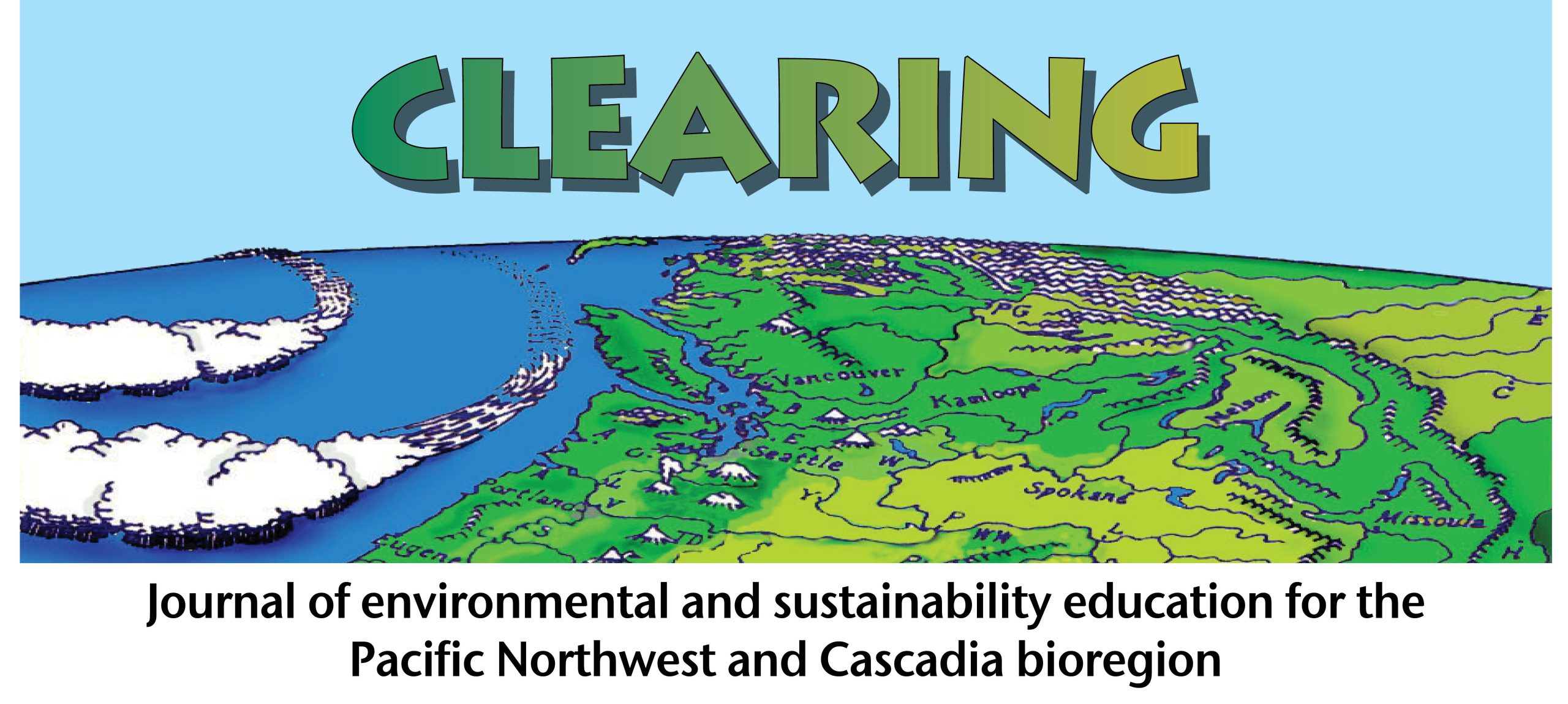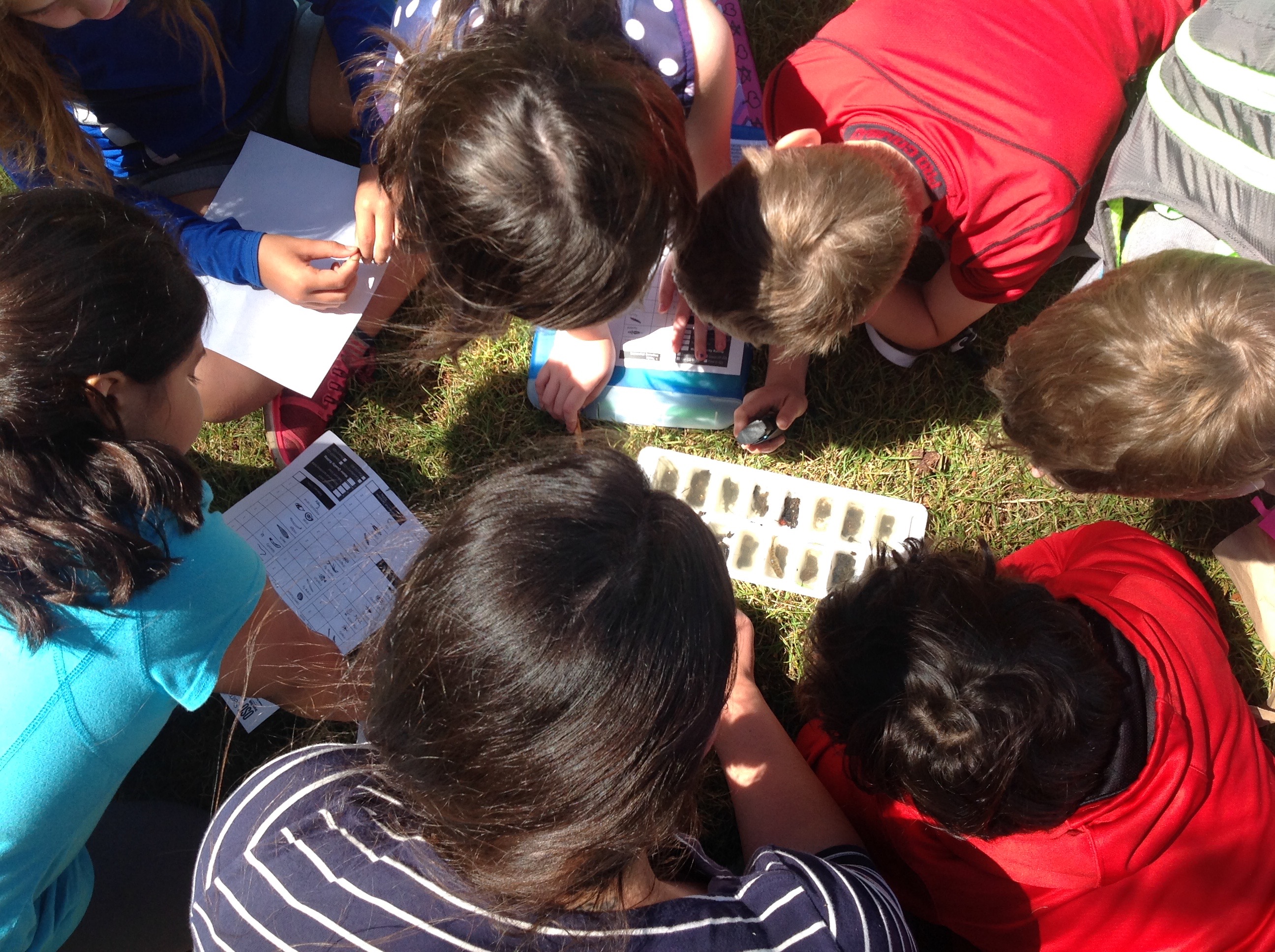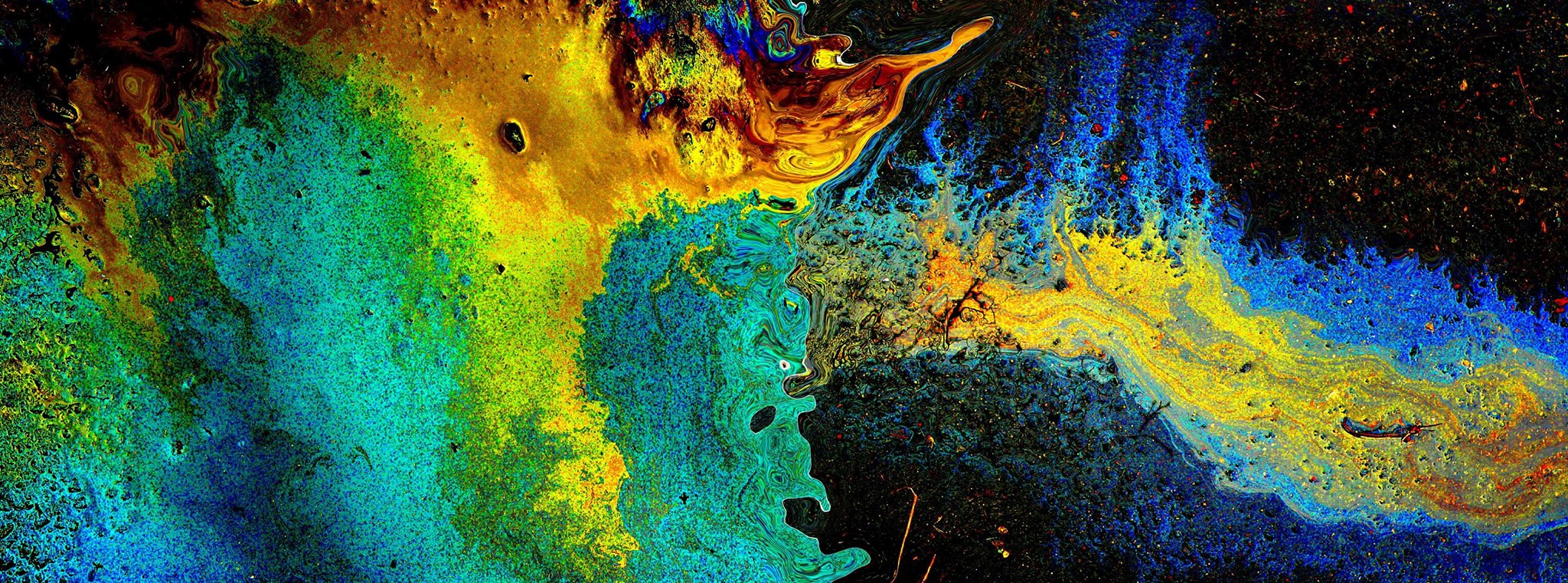Explore the archives
Pairing Autoethnography with Biocultural Diversity in Botanical Gardens
Dr. David Zandvliet, Ph.D., Simon Fraser University Professor and UNESCO Chair Chantal Martin Director, Education & Research Vancouver Botanical Gardens Association Poh Tan PhD (UBC, Exp. Medicine), PhD (SFU, Education) Scientist, Researcher, Educator, Author,...
Fun With Soil Health: Engaging Communities in Agriculture Education
It’s hard to imagine a more attention-getting activity for students of all ages than the Soil Your Undies Challenge. The name alone evokes questions, and the process is a memorable way for students to understand the multiple factors impacting soil health, as 21 K-12...
A linguistic “ecosystem”: Word study methods for outdoor education
A linguistic "ecosystem": Word study methods for outdoor education by Sam Rubin samrubin19@gmail.com Once the students had settled on the benches of the Pond Shelter on IslandWood’s campus, I unfolded my large butcher paper with the word "macroinvertebrate"...
Integrating Place-based EE, Literacy, and the Performing Arts
Staging Nature Integrating Place-based Environmental Education, Literacy, and the Performing Arts by Regine Randall, Rebecca Edmondson, and MaryAnne Young "Teacher, teacher, teacher, teacher, teacher!” Such a cry is likely to get any educator’s attention—and...
Field-based Inquiry: Developing Comprehension and Memory
Field-based Inquiry: Developing Comprehension and Memory Preparing teachers to introduce their students to field-based research in local or regional environments means that these teachers have an inherent need to actually be able to do the kinds of work they plan for...
Building a Community: The Value of a Diack Teacher Workshop
Building a Community: The Value of a Diack Teacher Workshop Teachers are being asked to do more than ever before. We are inundated with meetings, grading, analyzing data and curriculum development. The idea of taking kids outside to do field-based research can be...
Instilling a culture of caring and fieldwork in a Montessori adolescent program
Instilling a culture of caring and fieldwork in a Montessori adolescent program by Jonathan Erickson Metro Montessori School Portland Oregon One thing that drives most educators is the hope that we are guiding students who will ultimately care about the work that they...
STEM Field Study Kits for All! – Investigating the Natural Environment
STEM Field Study Kits for All! by Martin E. Fortin, Jr. AWSP Director of Learning Centers Originally published in CLEARING January 2017 arly in my career as a science teacher I had the opportunity to attend a lecture by the famous Princeton professor Dr. Herbert...
Expeditionary Learning: Exploring Healthy Forests
Expeditionary Learning: Exploring Healthy Forests By Val McKern and Greg Goodnight What is a healthy forest? That is the question that Kettle Falls Elementary School fourth graders have been grappling with all winter. In order to examine this question, fourth grade...
Making Science Engaging at Camp
Making Science Engaging at Camp Connecting art and science helps students find STEM classes more engaging and enjoyable By Elli Korthuis 4-H is a youth development organization that focuses on helping members, ages 5-19 years, grow as individuals through their mastery...
Bringing the Ocean into the Schools…and Schools to the Ocean
Bringing the Ocean into the Schools...and Schools to the Ocean By Catherine and Joachim Carolsfeld “I like the discoveries of the sea tank each time I look at it.” (10 year old Elementary School Student) “Some specimens in our tank that are local I didn’t even know...
Living Soil and Composting: Life’s Lessons in Learning Gardens
Living Soil and Composting: Life's Lessons in Learning Gardens by Dilafruz Williams and Jonathan Brown, Portland State University After we spread the chicken poop, we covered it with hay… the poop was the fertilizer and the hay was the stuff that kept the plants warm....
Homeschooling and the Establishment of a Research Forest
A Natural Fit: Homeschooling and the Establishment of a Research Forest by Jess Lambright For those open to an alternative educational path, a classroom with no walls or desks but instead trees, meadows, and streams, offers abundant opportunities for scientific...
Restoring a School Habitat as Project-based Learning and Inquiry
Scotch Broom Saga: Restoring a School Habitat as Project-Based Learning and Inquiry by Edward Nichols and Christina Geierman Since the advent of No Child Left Behind, many schools have turned their focus inward. Students rarely leave the classroom. Teachers often...
Thoughts on teaching environmental realism at an early age
The wild turkeys on my street don’t wear booties in the winter and the mouse in my house doesn’t wear bonnets from a closet! Should environmental education start with realism in the early years? by Suzanne Major Ph.D. Anthropology of Early Childhood Education Books...
Empowering Their Voices: Students Sound Off on Puget Sound
Empowering Their Voices: Students Sound Off on the Puget Sound by Nancy Skerritt and Kristin Edlund What makes work truly meaningful? Creating curriculum that harnesses and nurtures the student’s voice is challenging work. We believe that engaging students in real...
Caring for the Sea
from Bec Boyd article: Growing Kids Who Care Clearing Compendium 2011 Oregon Institute of Marine Biology, Charleston OR “It’s good fun learning about the sea. We go out to the bay and find lots of different species. Itís important that we know more about the sea and...
Planting Seeds of Community
Planting Seeds of Community Sunnyside Environmental School, Portland, Oregon “This school makes you more confident and you get to try more things. The mixed classrooms in the middle school work really well. It is pretty fun actually because then the middle school is a...
Cultivating Identity: The power of identity development in the environmental education field
Cultivating Identity: The power of identity development in the environmental education by Morgan Malley For some time now Rupi Kaurís words "fall in love with your solitude" have been delicately swirling in my head. As a child I struggled to formulate an understanding...
Abernethy Elementary’s Farm-to-School and School Garden Program (plus Corvallis and CREST)
In Pursuit of Environmental Literacy: Abernethy Elementary’s Farm-to-School and School Garden Program by Sarah Sullivan At Abernethy Elementary, students enjoy freshly cooked breakfasts and lunches prepared on site by a trained chef. The meals are often prepared with...
Children’s Grand Adventure: The power of potential through the power of place
Children’s Grand Adventure: The power of potential through the power of place by Sami Wolniakowski Southern Oregon University Graduate Student In order to heal from hardship, for centuries people resorted to nature. The calm and beauty found in the outdoors instills...
Integration Can Help You Teach More Science and Environmental Education
by Jim McDonald The demands on classroom teachers to address a variety of different subjects during the day means that some things just get left out of the curriculum. Many schools have adopted an instructional approach with supports for students that teach reading...
Lessons of Feed Security, Sustainable Farming, and Systems Biology
Student perspective By Kayla Tran, University of Washington Student, Renton High School Graduate, 2018-2019 Project Feed 1010 Ambassador Crawfish, bean sprouts, and models of the water cycle and land erosion have lived on as my happiest memories of elementary school....
Cultivating Environmental Literacy and Sustainable Food through a Community Ambassador Program
Cultivating Environmental Literacy and Sustainable Food through a Community Ambassador Program by Jessica Day, Claudia Ludwig, and Nitin S. Baliga, Institute for Systems Biology Project Feed 1010 (PF1010) was founded in 2015 in response to a need identified by...
Empowering Elementary Students through Environmental Service-Learning
Empowering Elementary Students through Environmental Service-Learning by Eileen Merritt, Tracy Harkins and Sara Rimm-Kaufman “We use electricity when we don’t need to.” “When we use electricity we use fossil fuels and fossil fuels pollute the air and fossil fuels are...
Discovering Careers in Natural Resources through Outdoor Adventures
Discovering Careers in Natural Resources through Outdoor Adventures by Emily J. Anderson Oregon State University Career education and opportunities to explore diverse options in higher education are often limited for many high school students. New college students...
Environment, Literacy, and the Common Core
Environment, Literacy, and the Common Core by Nancy Skerritt and Margaret Tudor, Ph.D. ABSTRACT: This article describes how Common Core ELA standards provide an important opportunity to build background knowledge on environmental topics in preparation for a deeper...
Integrating Watershed Science in High School Classrooms
Integrating Watershed Science in High School Classrooms The Confluence Project Approach High school students in northern Idaho learn about watersheds and the impacts of climate change through an intensive field science program that aligns with the Next Generation...
Tend, Gather and Grow
A Teaching Toolkit Connecting Students with Plants, Places, and Cultural Traditions By Kim Gaffi, Mariana Harvey (Yakama) and Elise Krohn Educating younger generations on the gifts of the land has always been a cornerstone of Indigenous teachings to strengthen mind,...
Beyond Environmental Literacy
Developing the “Whole Person” By Emily J. Anderson Photos by Emily McDonald-Williams Practitioners in the field of environmental education have a variety of personal reasons for pursuing this work. Many cite their desire to connect youth with nature, introduce youth...
Jim Martin: Education a Race to the Top?
Or, can we slow down enough to use inquiry to build effective conceptual learnings? Education is not a Race to the Top. I have to state that up front. In a Race to the Top are we allowed the time it takes to contemplate what we are learning? Time to dig into the...
K-12 Environmental Education Activity Ideas
GRADES K-2 Science Animal Ingenuity Explore how animal use materials from the environment in building homes. Start by looking at a bird’s nest. Examine the nest carefully. Use a hand lens. List all the materials you find in the nest. How is it held together? Social...
Designing Earth-Friendly Solutions To The Plastics Problem
by Kathryn Davis According to the United Nations, each year enough plastic is thrown away to circle the earth four times, and these plastics can take over 1000 years to degrade! Sobering facts such as these and images illustrating the devastating effect of plastic...
Reading the Landscape: Early Literacy in the Outdoor Classroom
by Joanna Wright Will my child be ready for Kindergarten?” As nature-based early childhood programs spring up across the country, this is a common query from interested families. While parents want to offer their children a chance to play outside, some also wonder if...
EE Research: Memories from Residential Outdoor Education Have Long-term Impact
THE RESEARCH: Liddicoat, K. R., & Krasny, M. E. (2014). Memories as useful outcomes of residential outdoor environmental education. The Journal of Environmental Education, 45(3), 178–193. For students, spending several days at a residential outdoor environmental...
Climate Change in Kwigillingok
First-person narratives bring climate change closer to home. By Lauren G. McClanahan “So, is her house actually sinking?” “Yes, Heather, it is.” “But, that’s so sad! I want to do something about that!” No doubt my preservice secondary education student, Heather, is...
Solo Walks
by Abigail Harding and Corwyn Ellison “We do not learn from experience, we learn from reflecting on experience.” -—John Dewey When we walk silently in the forest we allow ourselves to deepen our connection and strengthen our appreciation for the natural world....
Tangible Connections
Tangible Connections The Value of Community Agreements by Alyssa Caplan and Summer Swallow ABSTRACT Student-generated community agreements serve to create a positive learning community in residential outdoor environmental programs. This activity is essential and...
Screens in the Forest
by Greta Righter As an instructor at IslandWood, an environmental learning center on Bainbridge Island, WA, my week with students is fleeting. I have four days during IslandWood’s School Overnight Program (SOP) to explore and investigate the natural world with groups...
Towards Defining Resilience
AGES: 13 –18+ years old CONTRIBUTED BY Center for Cities + Schools University of California, Berkeley y-plan.berkeley.edu What does resilience mean to you? Psychologists, ecologists, and economists, cities, schools and businesses, and individuals all over the world...
K-12 Activities
GRADES K-2 Science Garbage Gardens Have students bring in an egg carton and empty halved egg shells from six eggs. Pierce the bottom of the egg shells and fill them with composted soil. Place the egg shells in the egg carton to keep upright. Plant various types of...
Indigenous Perspectives: Supporting Non-native Educators
Supporting Non-Native Educators with Since Time Immemorial: The Hummingbird Story by Jenni Conrad Summary: Based on research partnering with three Coast Salish nations, I offer five considerations to support K-12 non-Native educators who (like me) seek to build...
Indigenous Perspectives: Introduction
Indigenous Perspectives on EE Summer 2022 These are exciting times in our region. We are fortunate to live at the confluence of two currents: the growing integration of Indigenous perspectives in both formal and informal education, and a surge of cultural...
Jane Goodall Environmental Middle School: 25 Years of Field-based Research
by Mike Weddle The Jane Goodall Environmental Middle School (JGEMS) is a public charter school in Salem, Oregon focused on conservation biology and technology. We have been doing field-based research with students for 25 years, working at sites located just outside...
Why Field-based Inquiry?
by Willow Myrland Prior to teaching I worked for the USGS conducting amphibian and reptile surveys. I remember being struck by the fact that very little of my theoretical knowledge of science prepared me for the practical application of actually doing science. The...
Poetry and Science: Pathways to Presence
By Emilie Lygren I am a poet and outdoor science educator.” This is what I say when asked what I do for work. For me, poetry and outdoor science are complementary ways of looking at the world. They’re both rooted in common attitudes of attention, curiosity, and...
Summer 2022 – Intro
Indigenous Perspectives and Environmental Education: Connecting Youth with Plants, Places, and Cultural Traditions INTRODUCTION These are exciting times in our region. We are fortunate to live at the confluence of two currents: the growing integration of Indigenous...
Green Schoolyards – Garden Enrichment
Activating Schoolyards through Garden Enrichment by Bekah Marten, WSU Clark County Extension School Garden Coordinator In my current role as a School Garden Coordinator in SW Washington state, I have been able to work alongside school staff to help develop garden...
Green Schoolyard:
by Jane Tesner Kleiner We know that for kids of all ages, play equals learning. And play comes in many forms, such as team sports, partner games and individual kids creating their own play. Play can also be active, passive or quiet. Learning also comes in many forms,...
GSY: Understanding Green Schoolyards
Special Issue: Understanding Green Schoolyards Picture a noisy elementary classroom, with bustling kids cleaning up from a morning of schoolwork. Then see the doors swing open and they head outside for some fresh air and play. Some students make a straight line right...
Browse by Theme or Topic
Gardening, Farming & Permaculture
Stay Up to Date with the Latest Ideas and Resources
Join Our Newsletter
Stay up to date on environmental education in the Pacific Northwest. We’ll deliver ideas you can use to your inbox once a month.












































